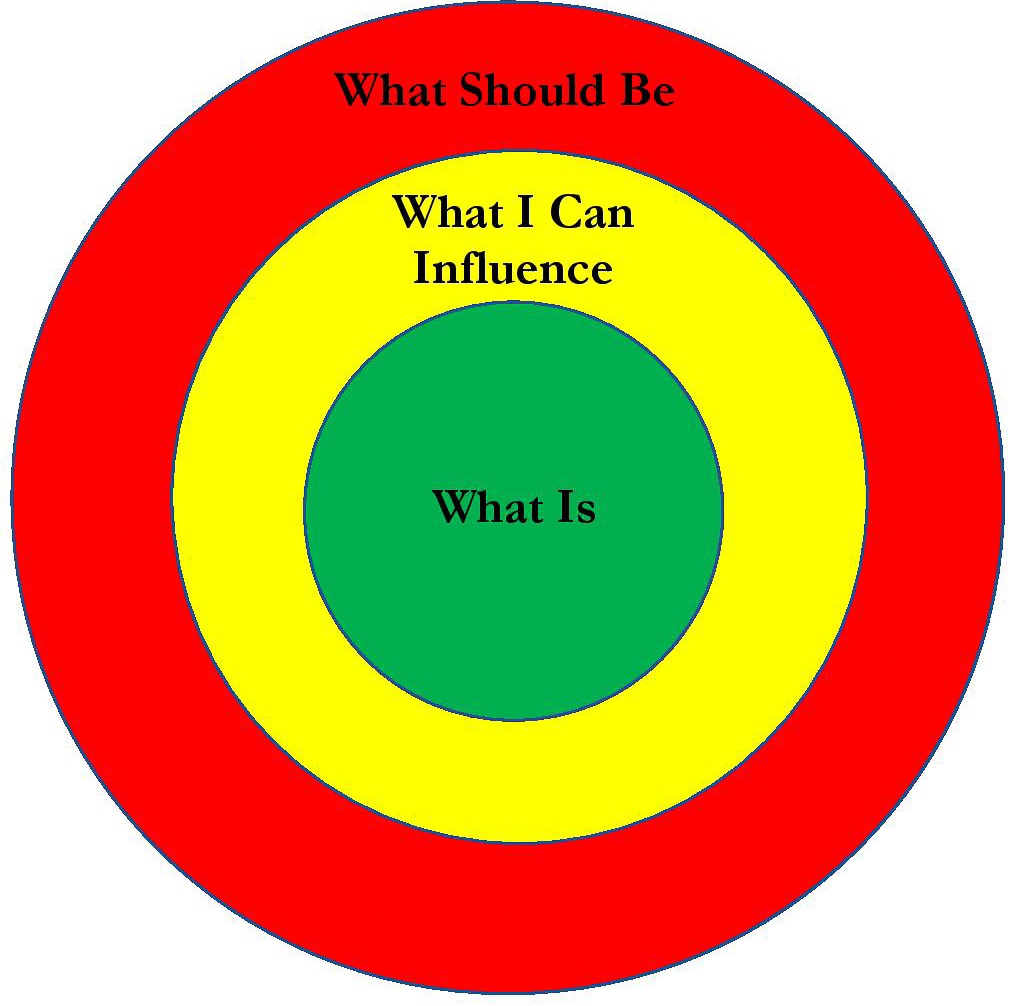Everything that happens in our lives falls into three categories. There are actions over which we have full control, such as our behavior and what we say to people. There are things we can influence, including other peoples’ behavior. Then, there are realities over which we have no control or influence.
If we spend too much time ruminating or fighting issues and events over which we have no control or influence, our resilience will quickly erode. Focusing on things you can't change wastes energy better-used elsewhere.
Unfortunately, it is easy to get trapped in this sphere. The best way to escape is to accept what you cannot control or influence.
"Acceptance" means "to take or receive what is offered." In human psychology, acceptance means that a person recognizes the reality of a situation, and decides not to resist or deny this reality. Acceptance is not approval or acquiescence. It does not mean you like, want, or support what is happening.
Acceptance is not always easy. This was made clear to me when I recently trained a group of social justice advocates. I used racism as an example to explain the Sphere of Control. While we were able to list what we could control and influence, we struggled emotionally to accept what was outside of our control/influence. For example, we did not want to accept that some people believe they have more value than others due to the color of their skin.
Unfortunately, it may not be possible to influence another person's core beliefs. When we find these beliefs offensive, it is a hard reality for many of us to accept.
Some participants wanted to use a different word. For example, some people teach the Sphere of Control using the word "concern" instead of "accept." I agree that it would be easier to express concern about White Supremacists rather than to accept that they exist.
However, I believe it is essential to take the emotional step of acceptance, which goes beyond recognizing reality by deciding not to resist or deny the hard truth. And, it’s important to remember that acceptance does not mean you approve of the beliefs.
Ironically, I also believe that acceptance can help us better influence other peoples' behaviors. While beliefs may not be changed, we can often impact the actions of other people.
For example, if I accept that a person has racist beliefs, I'm more likely to develop tactics to influence his behavior with that reality in mind. I also signal to the person that I see him for what he is, even if I find what I perceive to be abhorrent.
If I acknowledge but don't accept his beliefs, I risk spending my energy trying to get him to change his views instead of focusing on influencing his behavior. When we deny reality, we are less able to influence outcomes.
How do you accept what is outside of your control or influence?
___________________________
To learn more about how you and your team can thrive in adversity, check out my online Resilience Leadership course.


